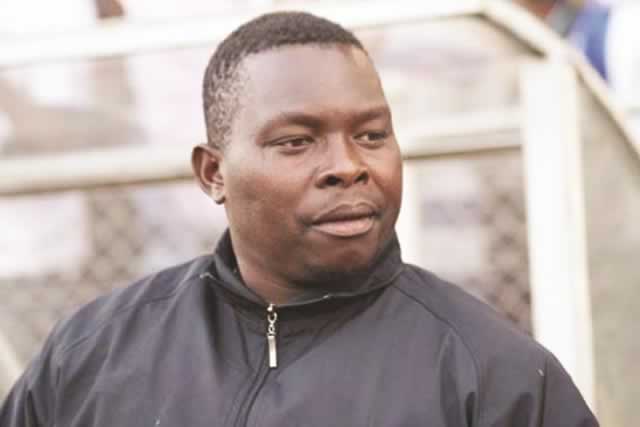Making choices and moving on

David Mungoshi Shelling the Nuts
Comrades and friends, please indulge me a little longer while I continue to mine from the depths of the wisdom of our people. Poetry and profound thought ooze like honey from the honeycombs of our culture and our experiences. And do forgive me for the mixed metaphor. I know, as we all do, that honeycombs are a bee thing and that there is no honey in all of us, really.
What we do and are doing now is create analogies from our environment. We see qualities in people other than ourselves and call them lions/dogs/busybodies depending on each specific situation. But we know very well that a human being cannot be a lion except in folklore. Of course, there is malice in some perceptions. Take the example of Irish-bashing by races that think themselves a rung higher than the Irish. Invariably, just as in the Van der Merwe jokes, obtuseness is the definitive “attribute” assigned in each case.
In other words, and because of agenda-setting and stereotyping, everyone takes it for granted Van and the Irish are thick somewhat. But of course we all know that stereotypes are not always true. Mrs Robinson was the Irish premier for many years. I love the Irish for their exotic accent, their passion and their Guinness, that beer with the unusual taste that unkind bigots claim is brewed using water from the Liffey River.
The nearest I can get to approximating the waters of the Liffey is by drawing an analogy between it and Bulawayo’s Mazai River, famously so-named for its foul smell that never varies (at least in my memory). Over the centuries, people have interacted in their communities and in their social circles. Sometimes they have breached their frontiers and started relationships with people from well beyond the confines of their known places of abode.
It is this social and other types of commerce that has given us our proverbs. We propose to look at a few more proverbs here and see what they yield. In other words, there is much to be gained from proverbs in terms of accomplishment, insight and relevance. The Nguni proverb, “Zala abantu ziye’bantwini’ (Girls spurn one suitor and still get lured by another man) has undeniable depth. The proverb goes on to say, “Akukho ntombi eyaqoma inyamazana”.
Quite an apt completion to the proverb because indeed no girl or woman for that matter, ever dated an animal (whether wild or domesticated). This essential truth is what the inimitable Paul Matavire was talking about in his famous and hilarious flake of genius when in bombastic English he observed, “Birds of the same feather perambulate in the same proximity” or words to that effect.
After the death of the iconic Nigerian writer, Mr Albert Chinua Achebe a few years back, writers from Africa, the Diaspora and other groups of writers from around the world gathered in Accra to celebrate the life, work and times of this famous son of Africa. In the process, the Ghana national Theatre, guided and directed by my learned friend, Professor Femi Osafisan of Ibadan University, did a rendition of a play based on Achebe’s not so artistic but prophetic novel, “A Man of the People”. The performance was a hilarious masterpiece. And it all began with the unique and eye-catching title, “The Discombobulation of a Rookie Patriot”.
Matavire would have savoured this one! Achebe was expert at such things as the use of creative turns of phrase and of course the use of proverbs, which somewhere or other one of his characters describes as the salt with which we eat our words. In a supreme illustration of the need for growth, development and adjustment, Achebe’s characters say, “Eneke the bird says men of today have learned to shoot without missing, so I have learned to fly without perching.” Simply put, the proverb aptly reminds us that unusual problems can only be solved using unusual solutions. It can never be business as usual.
Whole civilisations in the Americas disappeared after failing to do just these things. Call it decimation or call it genocide, they became the unfortunate victims of their kindness set against Caucasian avarice. The Soul Brothers sang, “Umuntu akabongi/ Noma ungamsiza kanjani/ Wamnik’isandla/ Usefun’ingalo yonke/ Akabongi umuntu” (People can be so ungrateful/ No matter how well-meaning and helpful you might be/ Give him a helping hand/ He wants your whole arm).
These sentiments are the same as those expressed by Bob Dylan in “Don’t Think Twice, It’s Alright” when he laments, “I gave her my heart, but she wanted my soul”.
Many of the first nation peoples in the Americas fell victim to this simple fact of human greed and selfishness. In Zimbabwe, this unfortunate trait of human nature is illustrated by the failure in large measure of the official policy of reconciliation when former Rhodesians refused to reciprocate the gesture of the olive branch extended to them as a symbol of abiding peace with bygones being bygones and sleeping dogs being allowed to sleep/ lie. In my parting shot last week, I made reference to the convulsions emanating from the succession politics that has become so debilitating in the country’s two major political parties, ZANU-PF and the MDC, with allegations of plots and counter plots bandied left, right and centre.
In bringing up this hot topic in my usually calm and some will say my usually sedate column, I used the proverb that says, “Kuenda kwehosi inosiya imwe” (The senior wife in a polygamous family is always replaced by another when she leaves or passes on).
The lessons that life teaches us are apt, true and instructive. The simple lesson here is that in all things, nature hates vacuums and accordingly, empty positions will always be filled in. The political arena cannot be an exception. Now that voter registration seems to have begun in earnest after the trial run, we shall soon see politicians, their polling agents and the inevitable activists begin to vie for the hearts of the voting public. One hopes that at the end of the day, after the people have spoken, no one will try to subvert their will. The winners must learn to be gracious in their victory and likewise the losers. It shouldn’t be too difficult to swallow one’s pride and accept that indeed voters, like girls, spurn a suitor only to grant their favours to another man.
Zal’abantu ziy’ebantwini! Just as it is, a woman’s democratic right and prerogative to say no to drab or unwelcome courtship, voters too, have this sacred right. If we leave politics alone for now and visit the social arena, we see a rather sad picture there. Our people have become shadows of themselves under the onslaught of foreign ideas and alien thinking. The mantra seems to be, “If I can’t have you, then no one else will”. You hear of discordant and disenchanted couples killing each other on the grounds of alleged infidelity.
Take the recent ghastly example of the Mutare killer who came home after a 25-year absence and killed his wife. His defence, as expressed in his suicide note is immaterial. How could he go away for 25 years and expect to be allowed to walk in through the door as if it is the end of another normal working day. People move on and life goes on. But some people fail to heed the wisdom in our proverbs, preferring instead to be tutored by radio and television. Where I come from, the people say that when a union has become a liability regardless of the reasons, the wife should be allowed to go away in peace and in one piece.
The disgruntled husband is supposed to show her the wide open highway outside and point out the direction to where she came from and along which she must now return. He says as a matter of fact, “Nzira igumbu” and she vanishes down the road perhaps never to be seen again. Whatever the case, she leaves without physical damage to herself and her parents can say “All is well that ends well”.
What I am saying here makes a lot of sense to some of the people from the horn of Africa to whom the concept of jealousy is completely unknown and there is no such thing as infidelity among them. They probably have a similar proverb to the one that says, “Mwoyo muti, unomera paunoda/The heart is a tree; it grows where it chooses to grow”.
Lovers and politicians alike, must learn this wondrous truth from nature’s archives. After the 2018 elections and even before, many will weep as their constituents reject them. Dear politician, take any such defeat and disappointment in full stride. When they reject you, it is not so much a rejection of you as it is an exercise of their democratic right vote and choice.
- David Mungoshi is a writer and a social commentator and editor and a retired teacher.










Comments